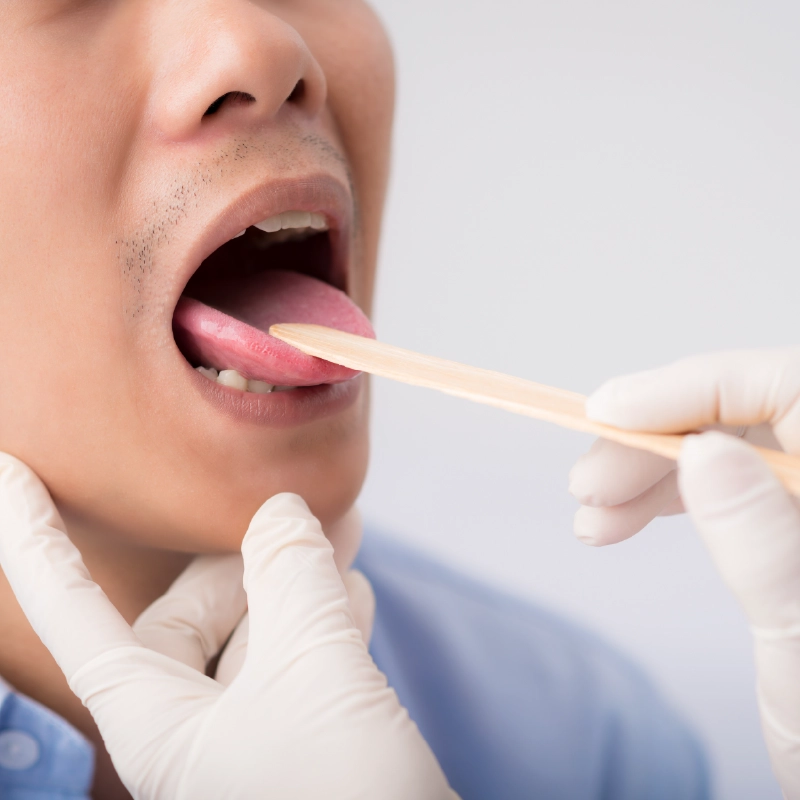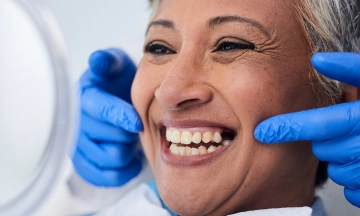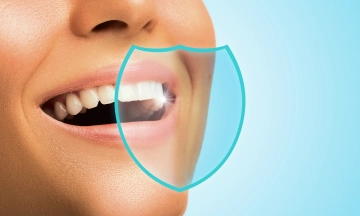
When it comes to our overall health, we often focus on monitoring things like our weight, blood pressure, and heart rate. However, there's one body part that can often give us important clues about our health that we might not even think about: our tongue. The tongue is an incredibly important organ that plays a key role in our ability to taste, speak, and chew. But did you know that the appearance and health of your tongue can also indicate underlying health issues? You can consult with a tongue specialist in Bangalore to get a proper diagnosis and check-up.
In this blog post, we'll explore the anatomy of the tongue, common tongue conditions, and how the appearance and health of your tongue can indicate overall health. We'll also discuss tips for maintaining a healthy tongue and when to see a doctor if you're concerned. By the end of this post, you'll have a better understanding of the important role your tongue plays in your overall health and what you can do to take care of it.
Anatomy of the tongue
The tongue is a complex organ that is made up of muscles, blood vessels, and nerves. It plays a crucial role in our ability to taste, speak, and chew. The tongue is made up of several different types of taste buds, which are responsible for sensing sweet, sour, salty, and bitter flavours.
The tongue also contains papillae, which are small bumps that are covered in taste buds. These papillae help us to sense the texture and temperature of food. The tongue is also responsible for moving food around in the mouth, making it easier to chew and swallow.
Parts of the tongue and their functions:
- The Tip of the Tongue: The tip of the tongue is responsible for sensing sweet flavours. It also helps with speech, as it is used to make sounds such as "t," "d," and "th."
- The Front of the Tongue: The front of the tongue is responsible for sensing sour flavours. It also helps with speech, as it is used to make sounds such as "s," "z," and "sh."
- The Back of the Tongue: The back of the tongue is responsible for sensing bitter flavours. It also helps with speech, as it is used to make sounds such as "k," "g," and "ng."
- The Sides of the Tongue: The sides of the tongue are responsible for sensing salty flavours. It also helps with speech, as it is used to make sounds such as "f" and "v."
- The Base of the Tongue: The base of the tongue is responsible for helping to move food to the back of the throat for swallowing. It also helps with speech, as it is used to make sounds such as "m," "n," and "ng."
- The Papillae: The papillae are small bumps on the tongue that are covered in taste buds. They help us sense the texture and temperature of food.
It's important to note that the tongue is a complex organ and its functions are not limited to the above description. It has many other functions like aiding in swallowing and regulating breathing and it also helps in speech. The tongue is a versatile organ that plays a vital role in our overall health and well-being.
Common diseases or conditions of the tongue
There are several diseases and conditions that can affect the tongue and cause discomfort or even pain. Some common tongue conditions include
- Thrush: Thrush is a fungal infection that affects the tongue and other parts of the mouth. Symptoms include white or yellow patches on the tongue, redness, and soreness. Other symptoms may include difficulty swallowing, taste disturbances, and a burning sensation in the mouth.
- Geographic Tongue: Geographic tongue is a condition in which there are missing or red patches on the tongue. Symptoms include red or missing patches on the tongue, a burning sensation, and a metallic taste in the mouth. It can be uncomfortable but it's not harmful.
- Black Hairy Tongue: Black Hairy Tongue is a harmless condition that causes the tongue to turn black and hairy looking. Symptoms include a black and hairy-looking tongue, a bad taste in the mouth, and a feeling of dryness or roughness on the tongue.
- Glossitis: Glossitis is inflammation of the tongue. Symptoms include a smooth, swollen tongue with a changed colour, usually red. It may cause pain and difficulty speaking, eating and swallowing.
- Leukoplakia: Leukoplakia is a condition that causes white patches on the tongue, gums, or inside of the cheek. These patches may be raised and have a rough texture. They can be benign or precancerous and may need to be monitored by a healthcare provider.
- Burning Mouth Syndrome: Burning Mouth Syndrome is a condition that causes a burning sensation in the mouth, tongue, and lips. Other symptoms may include dry mouth, changes in taste, and a burning sensation in the throat.
- Oral Lichen Planus: Oral Lichen Planus is an autoimmune disorder that causes white, lacy patches on the tongue and inside of the cheeks. These patches may be painful and may bleed easily.
Tongue as an indicator of overall health
The appearance and health of the tongue can give important clues about underlying health issues. A healthy tongue is usually pink in colour, moist, and covered in small bumps called papillae. If the tongue is red, swollen, or covered in white or black patches, it may indicate a health problem.
The tongue can indicate problems with the digestive system, for example, if the tongue is pale or yellow, it may indicate anaemia caused by iron deficiency, which can be a sign of poor nutrient absorption in the gut. A swollen and smooth tongue can indicate a deficiency of vitamin B12 or folate, which are essential for proper tongue function. A swollen or inflamed tongue can also be a sign of inflammatory bowel diseases, such as Crohn's or Ulcerative Colitis.
The tongue can also indicate problems with the respiratory system, for example, if the tongue is dry and cracked, it may indicate a problem with the salivary glands, which can be a sign of Sjogren's syndrome, a disorder that affects the body's ability to produce moisture. A dry and cracked tongue can also be a symptom of smoking or breathing through the mouth.
A black and hairy tongue can be a sign of poor oral hygiene, and a yellow coating on the tongue can be a sign of oral thrush, which is a fungal infection that can occur due to poor oral hygiene or a weakened immune system.
It's important to note that the appearance of the tongue can indicate many other health issues as well, such as hormonal imbalances, autoimmune disorders, and certain infections. If you notice any changes in the appearance or health of your tongue, it is important to see a healthcare provider for a proper diagnosis and treatment.
How to maintain a healthy tongue
- Practice good oral hygiene: Brushing your teeth twice a day, flossing once a day, and using an antiseptic mouthwash can help to keep your tongue and the rest of your mouth clean and healthy.
- Scrape your tongue: Use a tongue scraper or a toothbrush with tongue-cleaning bristles to gently scrape the surface of your tongue. This can help to remove bacteria, food debris, and dead cells that can accumulate on the tongue and cause bad breath or a coated tongue.
- Stay hydrated: Drinking plenty of water can help to keep the tongue moisturized and prevent dryness and cracking.
- Eat a balanced diet: Eating a diet that is rich in fruits, vegetables, and whole grains can provide the vitamins and minerals that are essential for maintaining a healthy tongue.
- Avoid consuming excessive alcohol, tobacco and spicy food which can aggravate the tongue's condition.
When to see a doctor?
If you notice any changes in the appearance or health of your tongue, such as redness, swelling, or white or black patches, it is important to see a healthcare provider for a proper diagnosis and treatment. You should also see a healthcare provider if you have any symptoms such as difficulty swallowing, taste disturbances, or a burning sensation in the mouth. It's also important to see a dentist or dental hygienist regularly for a checkup and cleaning, as they can detect any issues with your tongue and oral health. If you experience any persistent or severe symptoms, it is important to seek medical attention right away. If you have any chronic health conditions such as diabetes, HIV or cancer, it is important to inform your doctor of any changes in your tongue's appearance or symptoms to ensure prompt evaluation and management.
Conclusion
In conclusion, the tongue is a complex organ that plays a crucial role in our overall health. It is responsible for our ability to taste, speak, and chew, but it can also indicate underlying health issues. Common tongue conditions include thrush, geographic tongue, black hairy tongue, glossitis, leukoplakia, burning mouth syndrome and oral lichen planus. These conditions can have different causes, symptoms, and treatment options. By paying attention to the appearance and health of your tongue, and taking steps to maintain a healthy tongue through good oral hygiene, staying hydrated, and eating a balanced diet, you can help to keep your tongue in good condition and detect any potential health problems early. If you notice any changes in the appearance or health of your tongue or have any symptoms, you can visit Sakra World Hospital, a dental hospital in Bangalore for a proper diagnosis and treatment.














